Find Help
More Items From Ergsy search
-
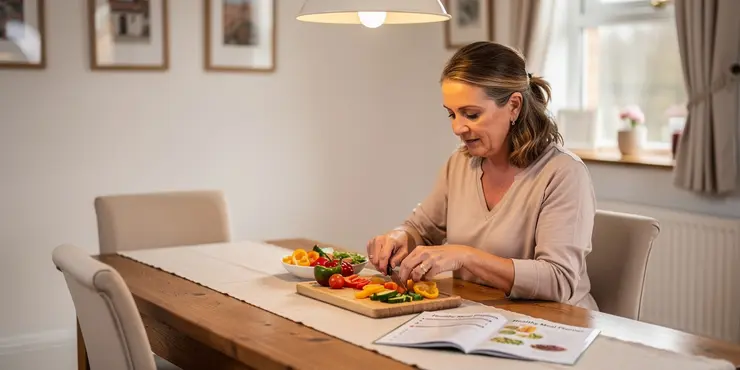
NHSGGC - Diet and Chronic Kidney Disease (CKD)
Relevance: 100%
-
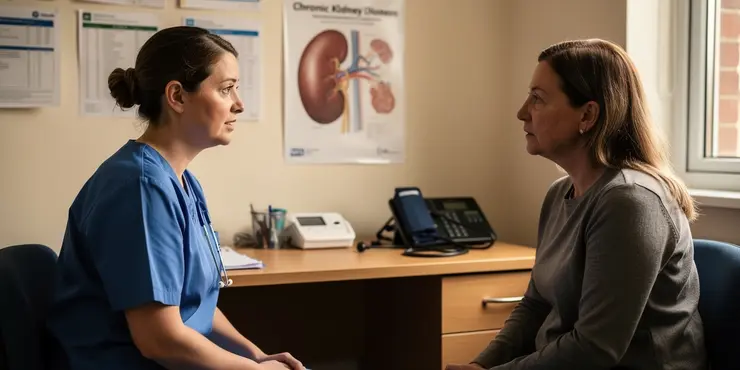
What causes chronic kidney disease?
Relevance: 91%
-
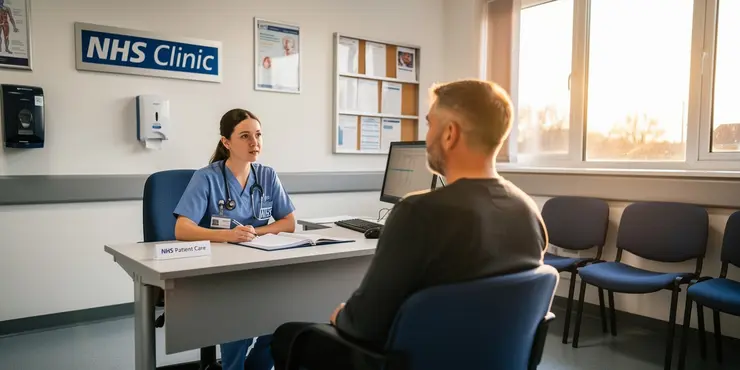
Chronic kidney disease: What are the treatments?
Relevance: 88%
-
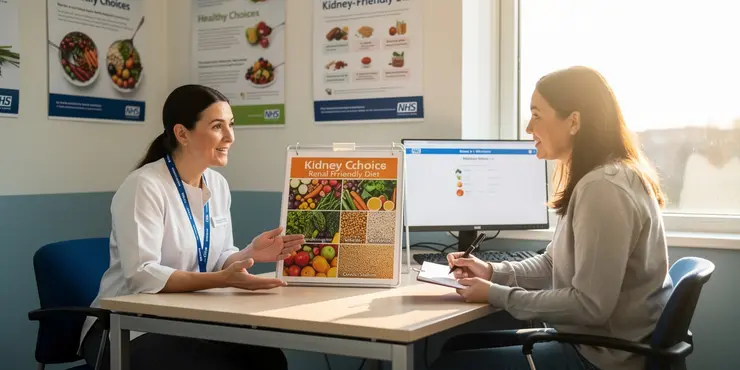
What should I eat to help with chronic kidney disease?
Relevance: 83%
-
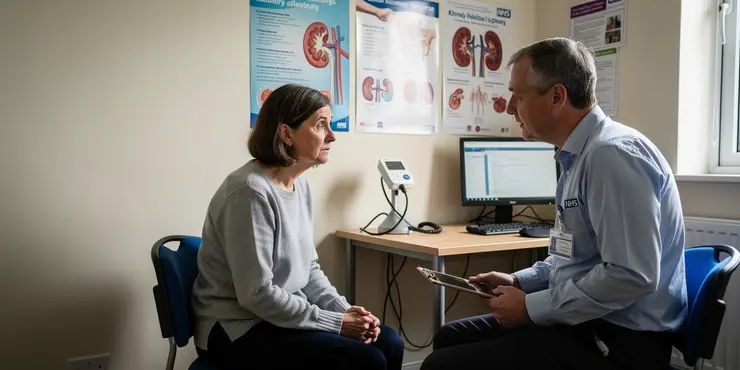
What is my risk of kidney failure with CKD (chronic kidney disease) | UHL NHS Trust
Relevance: 78%
-
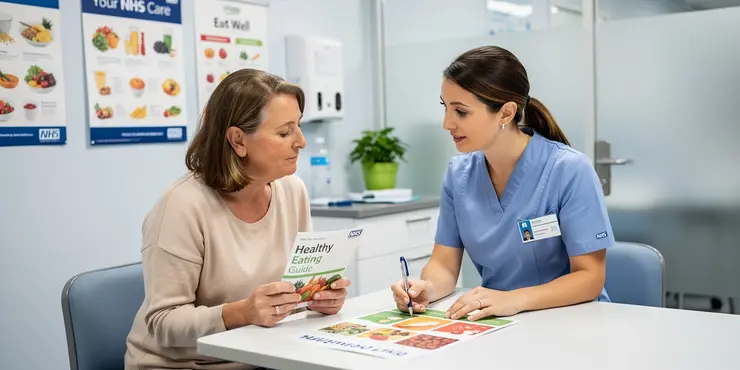
Living with early stage kidney disease
Relevance: 68%
-

Is there a link between seed oils and chronic diseases?
Relevance: 54%
-
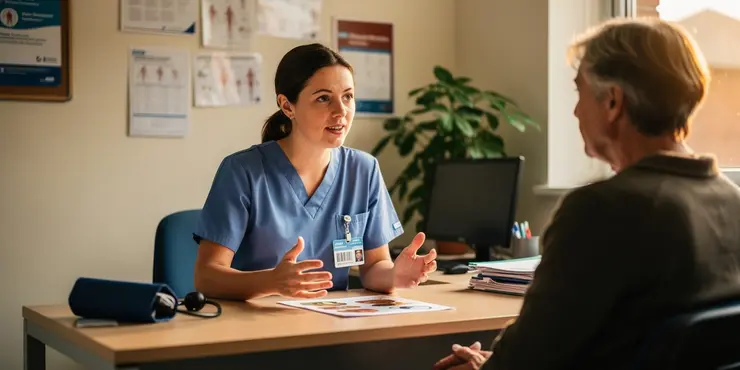
What is the best diet for Crohn’s disease?
Relevance: 50%
-
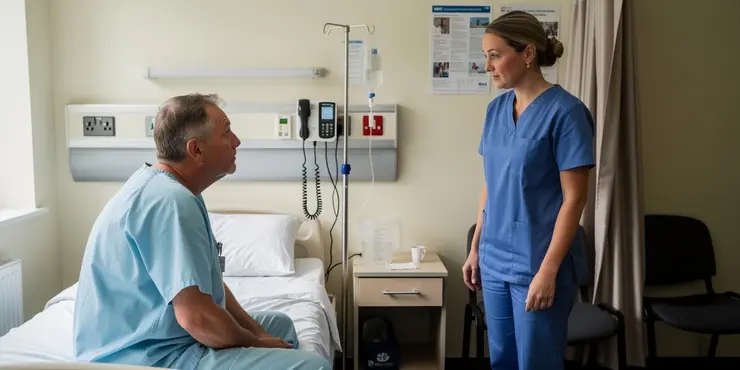
Having a kidney transplant
Relevance: 50%
-
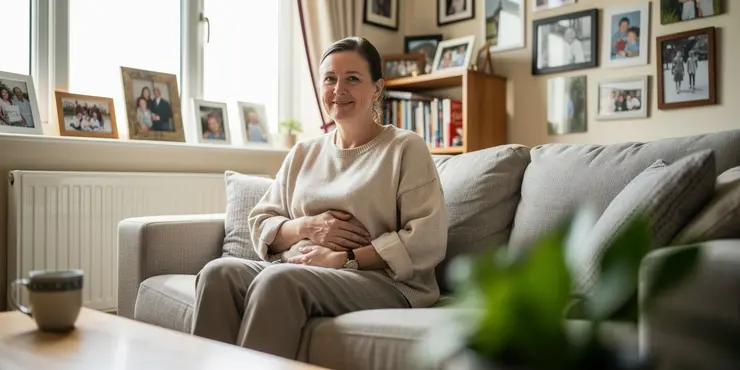
Patient Stories - Having a kidney transplant
Relevance: 46%
-
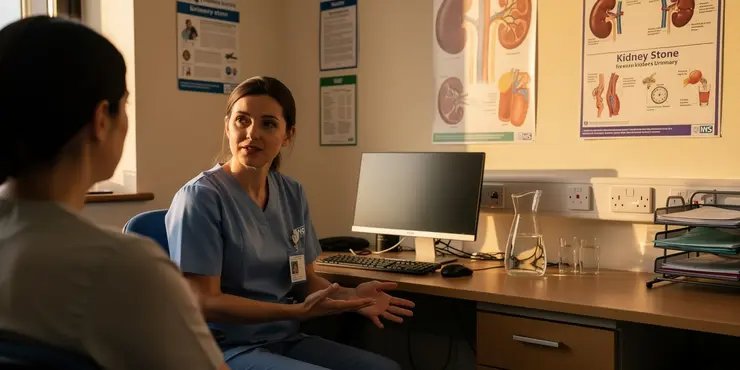
What are kidney stones?
Relevance: 46%
-
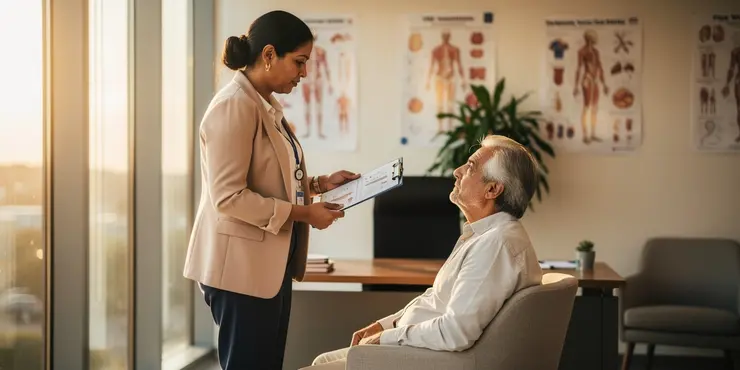
Does Ozempic have an impact on kidney function?
Relevance: 45%
-
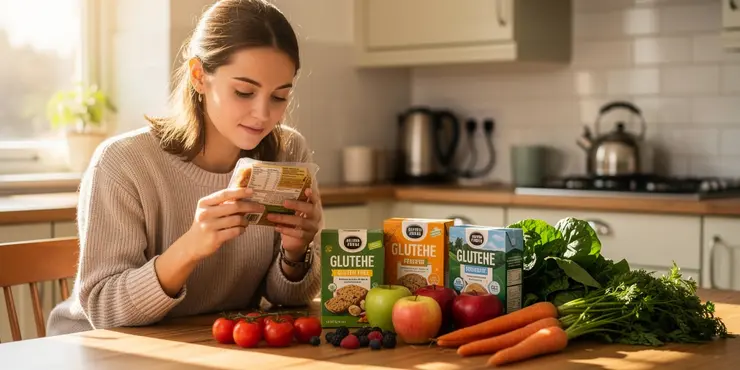
Coeliac Disease: The gluten free diet
Relevance: 45%
-
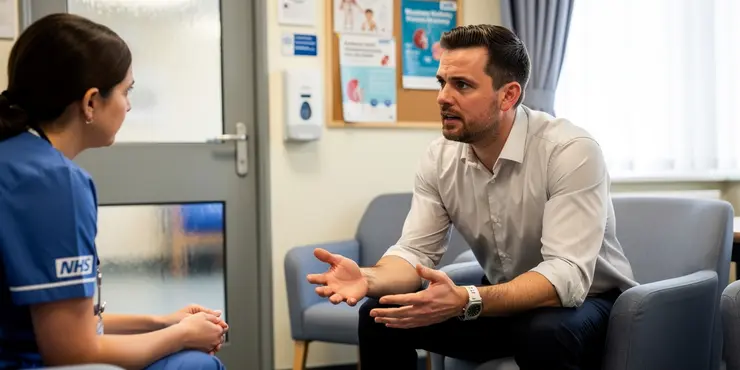
Matthew's Story: Kidney Transplant - Part 1
Relevance: 42%
-
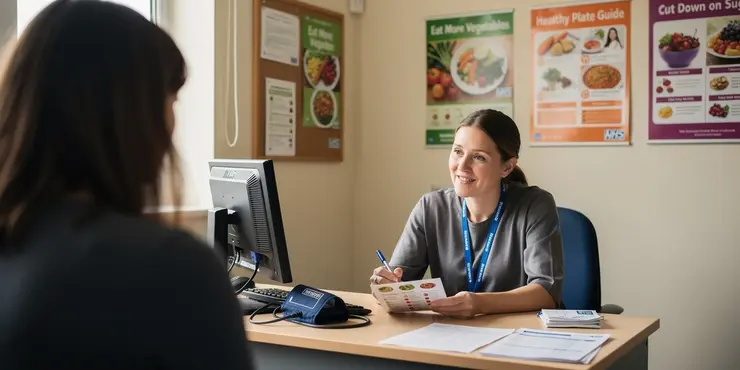
New Study Links Diet Soda to Increased Risk of Heart Disease
Relevance: 40%
-
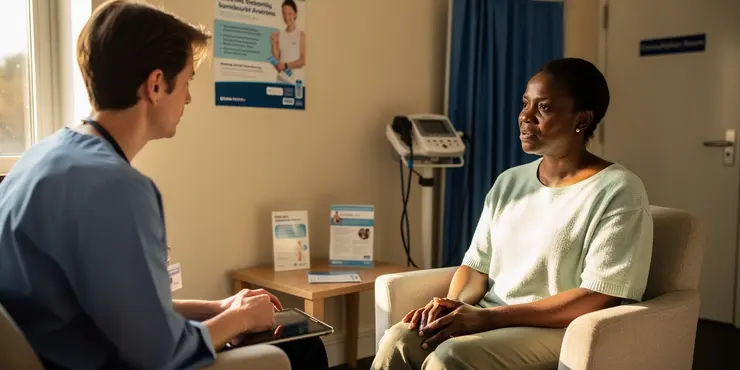
What are the complications of sickle cell disease?
Relevance: 38%
-
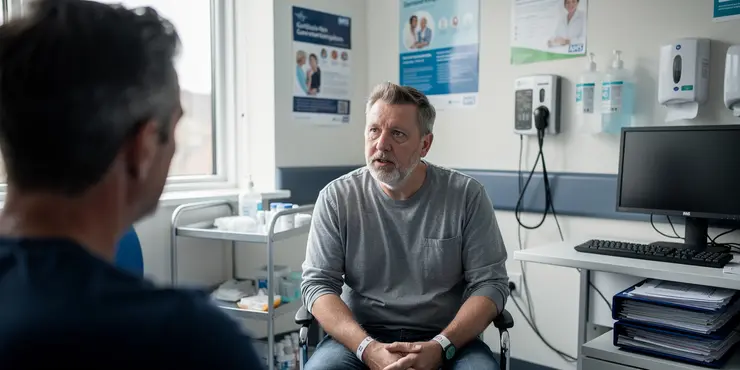
Kidney transplant waiting stories – DJ Ace and Lauren | NHS Organ Donation
Relevance: 37%
-
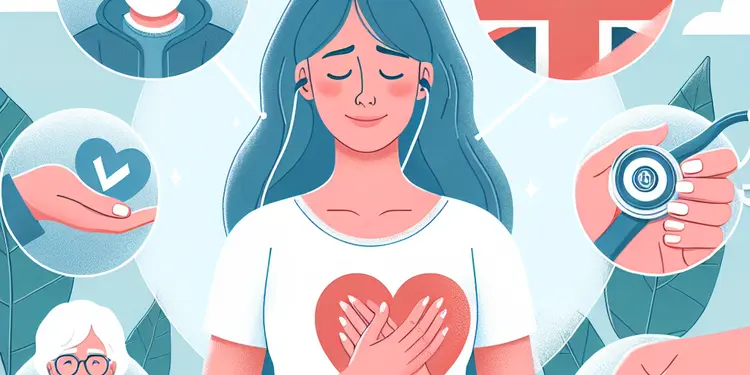
Is chronic fatigue syndrome contagious?
Relevance: 37%
-

Managing Chronic Illness Within the Family
Relevance: 37%
-

Understanding the Benefits of the Mediterranean Diet
Relevance: 36%
-
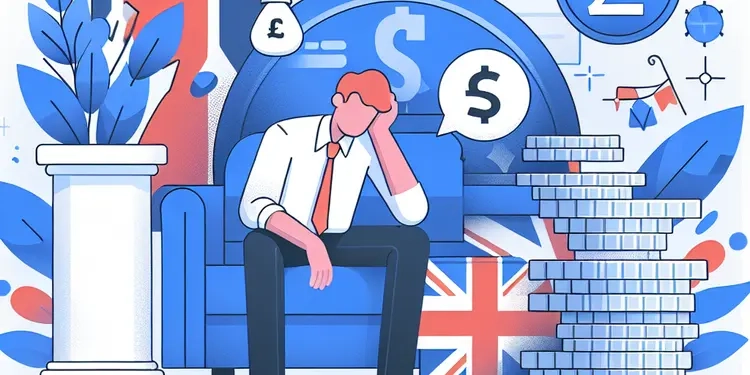
What is chronic fatigue syndrome?
Relevance: 35%
-
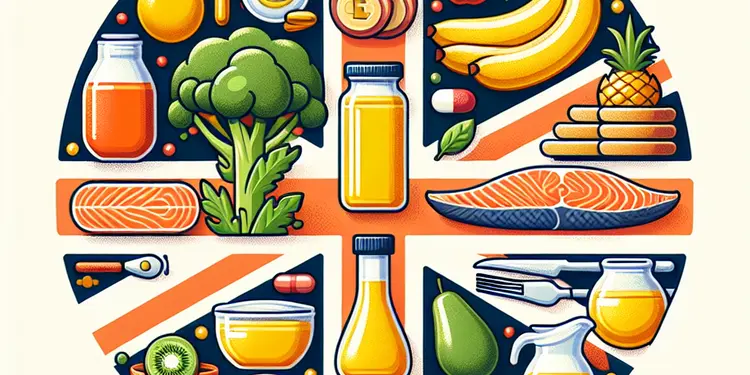
What is the omega-6 to omega-3 ratio in diets?
Relevance: 35%
-
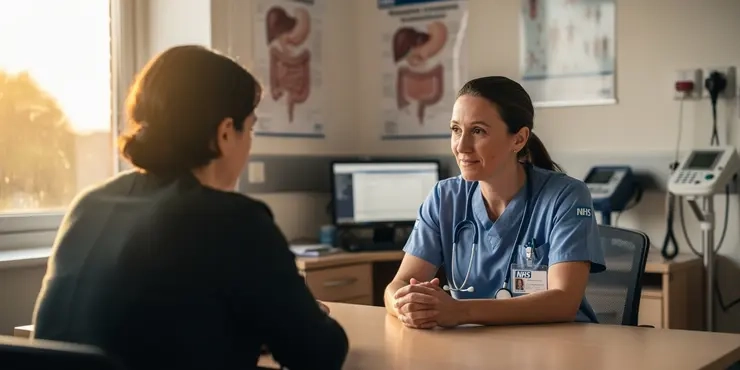
Coeliac disease
Relevance: 34%
-
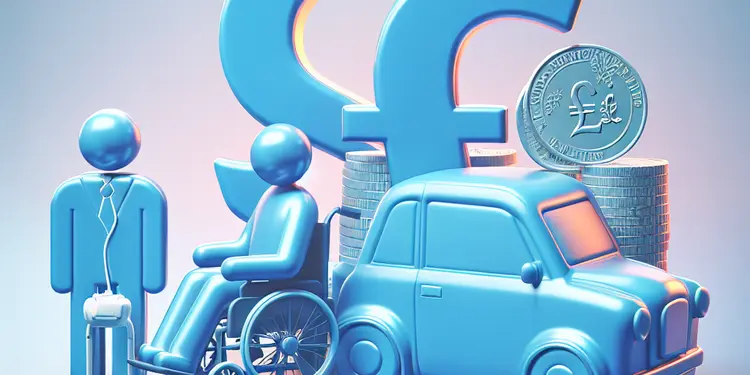
What role do chronic conditions play in driving risks for seniors?
Relevance: 34%
-
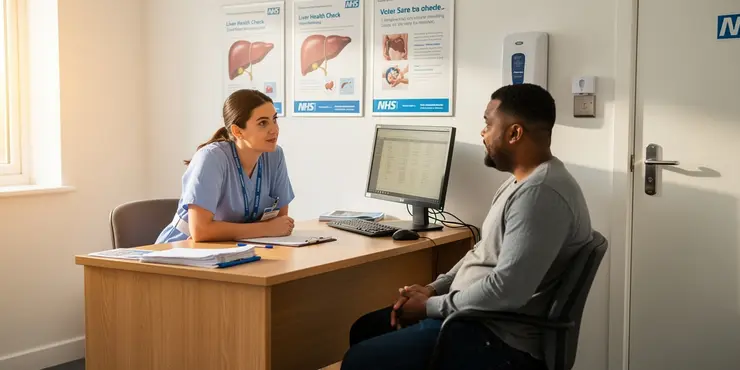
Liver disease | NHS
Relevance: 34%
-
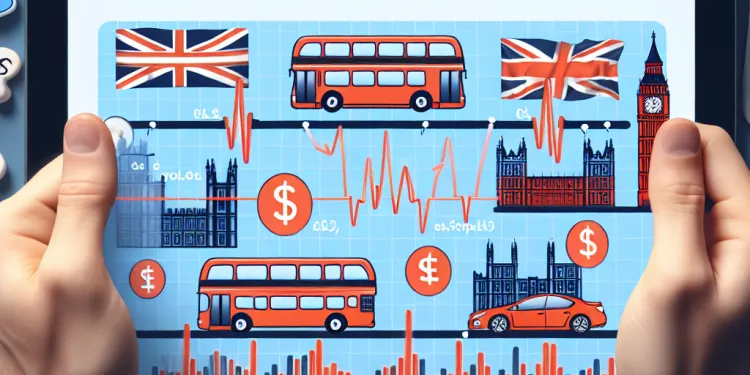
How do cortisol levels differ between acute and chronic stress?
Relevance: 33%
-
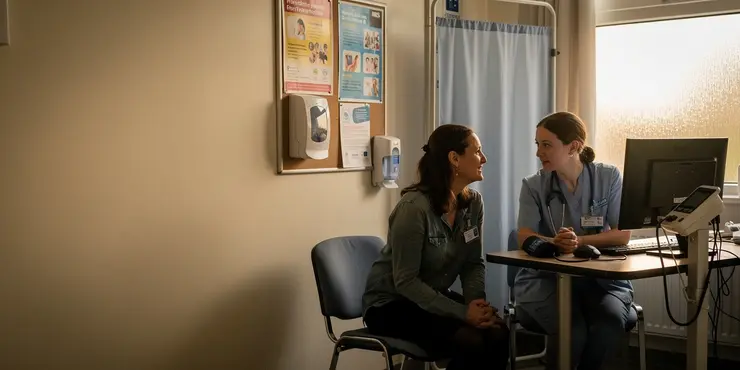
Is Crohn's disease contagious?
Relevance: 33%
-

What causes chronic fatigue syndrome?
Relevance: 33%
-
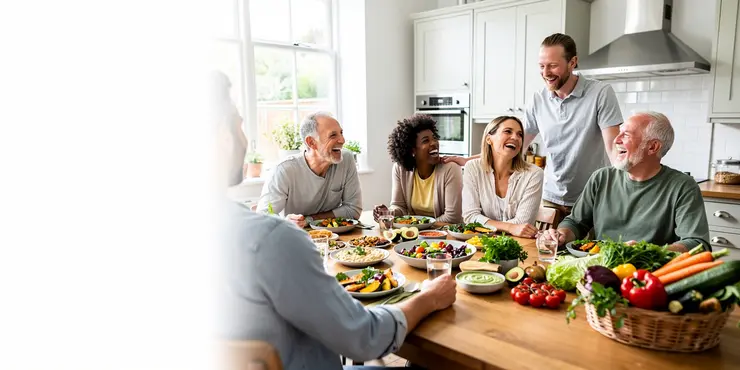
Record Number of Brits Embrace Plant-Based Diets for Wellbeing
Relevance: 33%
-
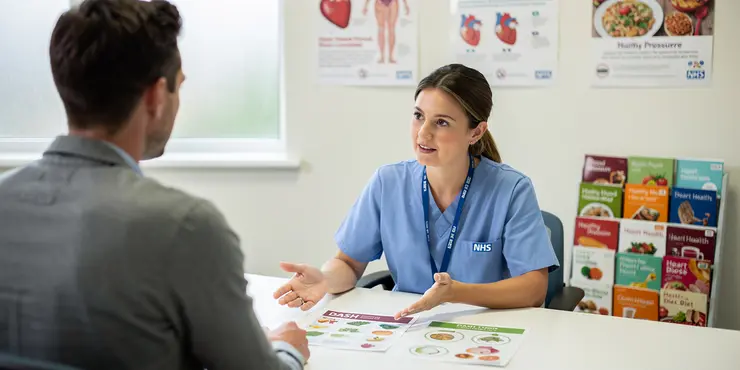
What is the DASH diet?
Relevance: 33%
-
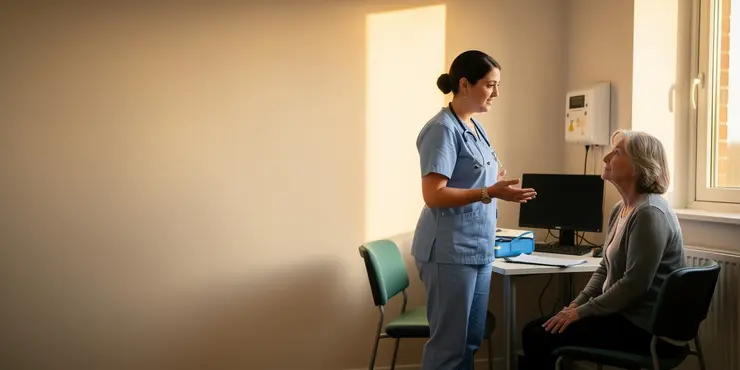
What causes Crohn's disease?
Relevance: 32%
-
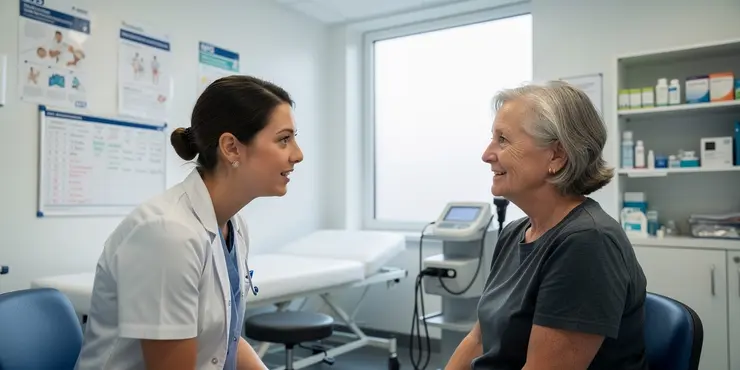
Is there a cure for Crohn's disease?
Relevance: 32%
-
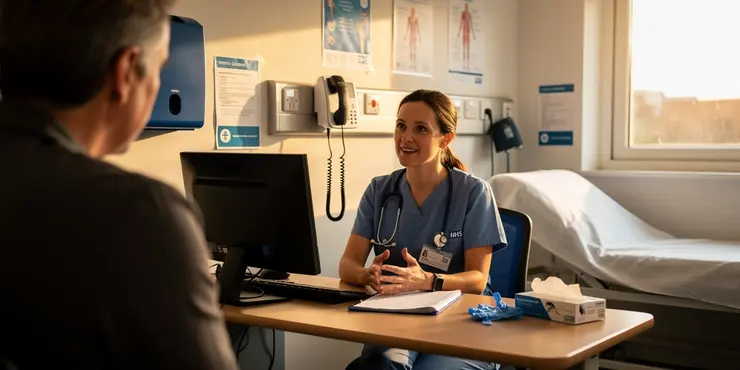
Are there any complications associated with Crohn's disease?
Relevance: 32%
-
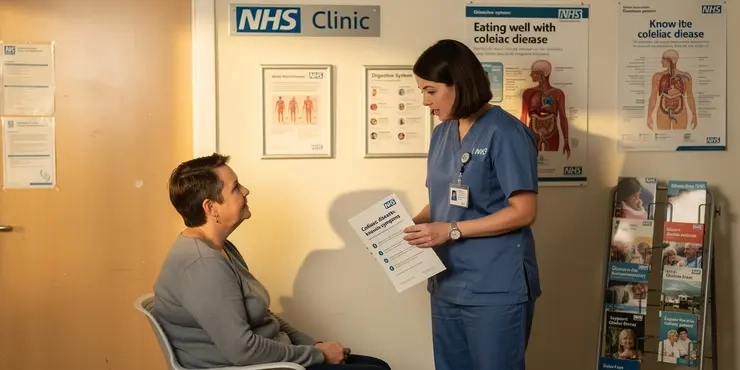
Coeliac Disease Explained - Gluten Sensitivity - A to Z of the NHS - Dr Gill
Relevance: 32%
-
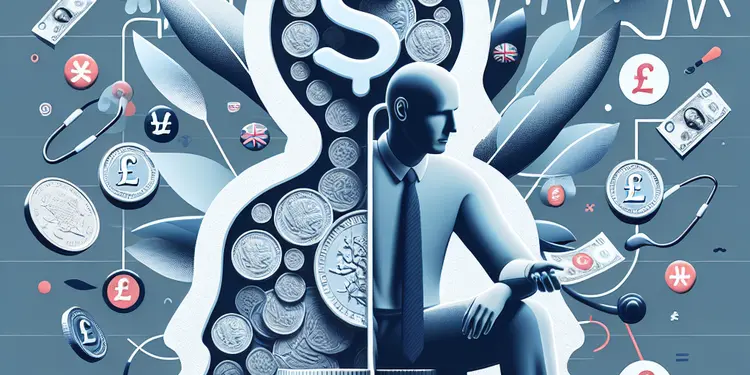
Is chronic fatigue syndrome a mental illness?
Relevance: 32%
-
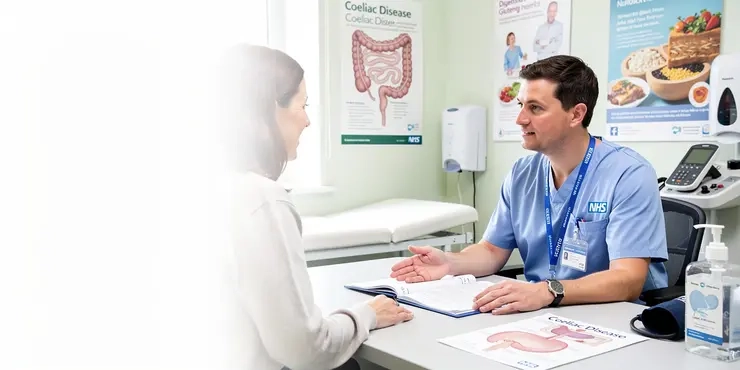
Coeliac Disease: Session 1: What is Coeliac Disease?
Relevance: 32%
-
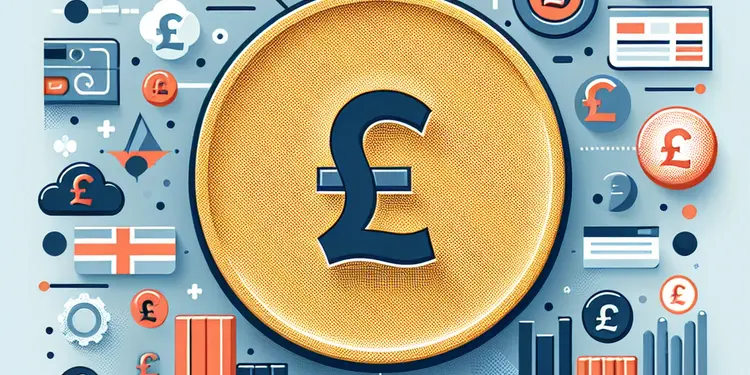
Who is at risk of developing chronic fatigue syndrome?
Relevance: 32%
-
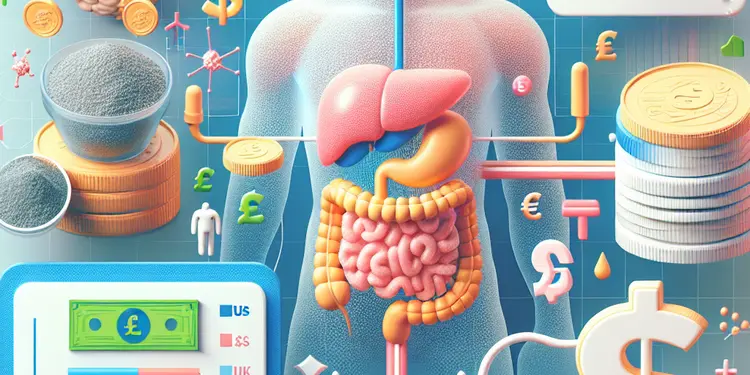
How does a high-sugar diet affect gut health in older adults?
Relevance: 32%
-
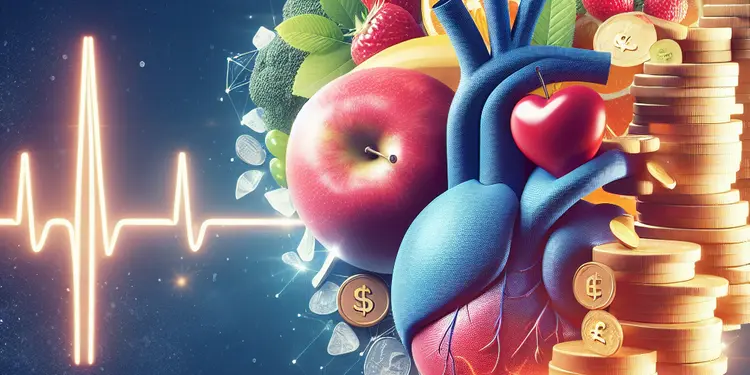
What is the role of diet in managing heart failure?
Relevance: 32%
-
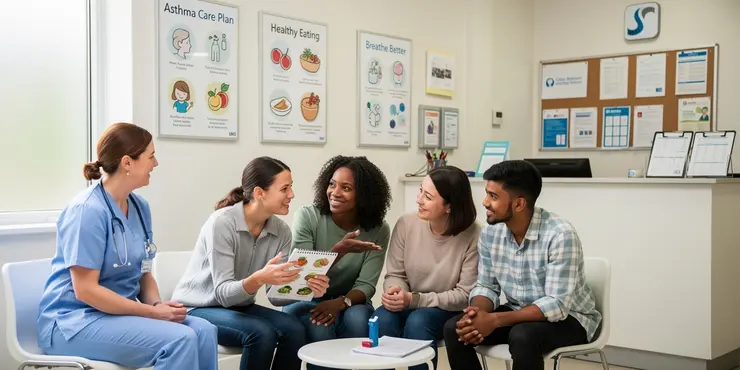
Can diet affect asthma?
Relevance: 31%
NHSGGC - Diet and Chronic Kidney Disease (CKD)
Understanding Chronic Kidney Disease (CKD)
Chronic Kidney Disease (CKD) is a long-term condition where the kidneys do not function as effectively as they should. It is a progressive disease, which means the condition worsens over time. Common causes include diabetes and high blood pressure. In the United Kingdom, CKD affects millions and maintaining a healthy diet is critical for managing the condition.
The Importance of Diet in CKD Management
A balanced diet is paramount for individuals with CKD to help slow the progression of the disease and manage symptoms. The National Health Service Greater Glasgow and Clyde (NHSGGC) provides guidelines to support those with CKD, emphasising the consumption of nutrient-rich foods that are lower in proteins, sodium, potassium, and phosphorus.
Recommended Dietary Adjustments
NHSGGC advises CKD patients to focus on the following dietary adjustments:
- Protein Intake: Limit consumption of protein-rich foods such as meat, fish, and dairy to reduce the strain on the kidneys.
- Low Sodium: Sodium can increase blood pressure, which is detrimental to kidney health. Reduce salt intake by avoiding processed foods and using herbs for seasoning.
- Controlled Potassium: High potassium levels can be harmful for kidney patients. Limit foods like bananas, potatoes, and tomatoes.
- Phosphorus Watch: Excess phosphorus can lead to bone problems. Reduce intake of dairy products, nuts, and colas.
Hydration and Fluid Management
Proper hydration is important, but NHSGGC recommends that fluid intake be guided by healthcare professionals to avoid overloading the kidneys. Patients should monitor their fluid intake according to their consultant's advice.
Consulting Healthcare Providers
Patients should work closely with dietitians and healthcare providers to develop a personalised diet plan. Regular monitoring and adjustments to the diet can ensure that nutritional needs are met while managing CKD effectively.
Conclusion
Managing CKD with the right diet can significantly enhance the quality of life and slow disease progression. NHSGGC provides essential resources and guidance for CKD patients in the UK, ensuring they receive optimal care and dietary advice.
NHSGGC - Diet and Chronic Kidney Disease (CKD)
Understanding Chronic Kidney Disease (CKD)
Chronic Kidney Disease (CKD) means your kidneys are not working well. This can get worse over time. It can be caused by diabetes and high blood pressure. Many people in the UK have CKD. Eating a healthy diet can help manage it.
The Importance of Diet in CKD Management
Eating well is very important for people with CKD. It can help slow down the disease and help with symptoms. NHSGGC gives advice on eating foods that are good and avoiding certain things like too much protein, salt, potassium, and phosphorus.
Recommended Dietary Adjustments
NHSGGC suggests people with CKD do these things with their diet:
- Protein Intake: Eat less meat, fish, and dairy. This helps your kidneys work better.
- Low Sodium: Too much salt can make your blood pressure go up. This is not good for your kidneys. Use less salt by avoiding fast foods and adding herbs to your meals.
- Controlled Potassium: High potassium is not good for CKD. Avoid eating too many bananas, potatoes, and tomatoes.
- Phosphorus Watch: Too much phosphorus can hurt your bones. Eat fewer dairy products, nuts, and colas.
Hydration and Fluid Management
Drinking the right amount of water is important. NHSGGC says you should talk to your doctor about how much to drink so you don't drink too much. Follow your doctor's advice on drinking fluids.
Consulting Healthcare Providers
Work with your dietitian and doctor to make a diet plan just for you. Check your diet often with them to make sure you get the nutrients you need.
Conclusion
Eating the right foods can help you live better with CKD and slow down the disease. NHSGGC helps people in the UK with CKD by giving them good advice and support.
Frequently Asked Questions
What is Chronic Kidney Disease (CKD)?
Chronic Kidney Disease (CKD) is a long-term condition where the kidneys do not work as well as they should. It's a progressive disease, which means it can get worse over time.
How does diet affect CKD?
Diet plays a crucial role in managing CKD. The right diet can help control blood pressure, blood sugar levels, and reduce the workload on your kidneys.
What should I eat if I have CKD?
If you have CKD, focus on eating a diet low in salt, potassium, and phosphate. Incorporate fresh fruits and vegetables, lean proteins, and whole grains.
Are there specific foods I should avoid with CKD?
Yes, avoid foods high in sodium (salt), potassium, and phosphorus, such as processed foods, certain dairy products, bananas, oranges, potatoes, and nuts.
Can I still eat out at restaurants with CKD?
You can eat out, but it's important to make careful choices. Opt for dishes with low salt, ask for sauces and dressings on the side, and avoid high-potassium and high-phosphate foods.
Is protein intake important for CKD patients?
Yes, but it should be controlled. Too much protein can put extra strain on your kidneys. Speak to a dietitian about the right amount for you.
How can I reduce my salt intake with CKD?
To reduce salt intake, avoid adding salt to your food, read food labels to choose low-sodium options, and limit processed foods.
Should I monitor my potassium intake with CKD?
Yes, high potassium levels can be harmful if you have CKD. Monitor your intake by avoiding high-potassium foods like bananas, oranges, tomatoes, and potatoes.
What are phosphate binders and do I need them?
Phosphate binders are medications that help prevent your body from absorbing phosphorus from the food you eat. If your phosphate levels are high, your doctor might prescribe them.
Can I drink alcohol if I have CKD?
Moderate alcohol consumption is often fine, but you should discuss this with your healthcare provider. Excessive alcohol can worsen kidney disease.
How much fluid should I drink with CKD?
Fluid intake recommendations vary based on your stage of CKD and individual health needs. Consult your healthcare provider for personalized advice.
Can lifestyle changes improve my CKD?
Yes, maintaining a healthy weight, exercising regularly, stopping smoking, and following a proper diet can help manage CKD and improve overall health.
Do I need to avoid caffeine with CKD?
Moderate caffeine consumption is generally safe, but excessive intake should be avoided. Consult your healthcare provider for specific advice.
Why is a dietitian important for managing CKD?
A dietitian can provide tailored dietary advice to help manage your CKD, ensuring you get the right nutrients while avoiding harmful foods.
Can I take over-the-counter supplements with CKD?
You should avoid taking any over-the-counter supplements without consulting your healthcare provider, as some can be harmful if you have CKD.
What is Chronic Kidney Disease (CKD)?
Chronic Kidney Disease, or CKD, means that your kidneys are not working well for a long time. You have two kidneys and they help clean your blood. This keeps your body healthy.
If you have CKD, your kidneys do not clean your blood as well as they should.
A doctor or nurse can help you learn more about CKD and how to take care of yourself.
Using pictures or videos can make it easier to understand CKD. If you have questions, ask someone you trust for help.
Chronic Kidney Disease (CKD) is when the kidneys don't work properly for a long time. It can get worse as time goes on.
Helpful tools and ideas:
- Picture Books: Use books with pictures to help explain things.
- Speak Slowly: Talk slowly and clearly when explaining.
- Repeat Information: It helps to hear things more than once.
How does food affect kidney problems?
Food is what we eat and drink. Our food can help us stay healthy. It is very important for our kidneys. Kidneys are like filters in our body. They clean our blood.
If you have kidney problems, eating the right food can help. You might need to eat less salt and sugar. Drinking water is also good for kidneys.
Your doctor can help you choose the right food. You can also talk to a dietitian. They know a lot about food and health.
To help understand more, you can:
- Ask someone to read with you.
- Use pictures to learn.
- Listen to information with audiobooks.
What you eat is very important if you have kidney problems. Eating the right foods can help keep your blood pressure and blood sugar levels normal. It also helps your kidneys not to work too hard.
Here are some tools and tips to help you:
- Meal Planning: Try planning your meals for the week. This can help you choose healthy foods.
- Read Labels: Look at food labels to check for salt and sugar. Less is better for your kidneys.
- Use Apps: There are apps that can help you keep track of what you eat. They can remind you to choose healthy foods.
What should I eat if I have CKD?
If you have CKD (kidney problems), it's good to eat healthy foods.
Here are some tips on what to eat:
- Eat fruits and vegetables.
- Choose whole grains like brown bread or rice.
- Pick lean meats like chicken or fish.
- Drink lots of water.
Ask a doctor or a dietitian for more help. They can make a plan just for you.
You can also use picture menus or apps to help you choose the right food.
If your kidneys are not working well, try to eat foods with less salt, potassium, and phosphate. Eat fresh fruits and vegetables, lean meats, and whole grains.
What foods should I not eat if I have kidney disease?
Yes, stay away from foods with a lot of salt, potassium, and phosphorus. This means things like processed foods, some dairy products, bananas, oranges, potatoes, and nuts.
Can I eat at restaurants if I have CKD?
Yes, you can eat at restaurants if you have CKD. You just need to be careful with what you choose to eat. Here are some tips:
- Look at the menu online before you go.
- Choose dishes that are lower in salt, sugar, and fat.
- Ask the waiter or waitress to help you choose healthy options.
- Drink water instead of fizzy drinks.
- If you are not sure, talk to your doctor or a dietitian.
By making smart choices, you can enjoy eating out and take care of your health.
You can eat at restaurants, but it is important to choose your food carefully. Pick meals with little salt. Ask for sauces and dressings on the side. Try not to eat foods with a lot of potassium or phosphate.
Is eating protein important for people with kidney problems?
People with kidney problems need to be careful with their food.
Eating the right amount of protein is important. Too much or too little can be bad.
Talk to a doctor or dietitian. They can help you know how much protein to eat.
Using pictures or a food chart can help remember what to eat.
Yes, you can, but not too much. Eating too much protein can make your kidneys work too hard. Talk to a dietitian to find out how much is right for you.
How can I eat less salt if I have kidney problems?
If your kidneys are not working well, too much salt is not good for you. Here is how you can eat less salt:
- Use herbs and spices to make your food tasty instead of salt.
- Read food labels to check for salt. Pick foods with less salt.
- Do not add extra salt to your food when you eat.
- Eat fresh fruits and vegetables. They have less salt.
- Cook meals at home so you know what goes into your food.
It might help to talk to a dietitian. They can give you good tips on eating less salt.
If you want to use less salt, here’s what you can do:
- Don't put extra salt on your food.
- Read the labels on food packages. Pick foods that don't have a lot of salt.
- Try not to eat too much processed food, like chips or ready meals.
Do I need to watch how much potassium I eat if I have CKD?
If you have kidney problems, too much potassium can be bad for you. Try not to eat foods with a lot of potassium, like bananas, oranges, tomatoes, and potatoes.
What are phosphate binders and do I need them?
Phosphate binders are medicines. They help keep phosphate levels in your blood normal. Your body gets phosphate from some foods.
If your kidneys are not working well, phosphate can build up in your blood. This can be harmful. That's why some people need phosphate binders.
Do you need phosphate binders? Ask your doctor. They will tell you if these medicines can help you.
It might help to write down any questions you have before talking to your doctor. You can also bring a friend or family member to help you understand.
Phosphate binders are medicines. They stop your body from taking in too much phosphorus from the food you eat. If you have too much phosphorus, your doctor might give you these medicines.
Can I drink alcohol if I have kidney problems?
If you have kidney problems, you might wonder if it's okay to drink alcohol.
It's best to ask your doctor. They can tell you what is safe for you.
Drinking alcohol can make kidney problems worse. So, it's important to be careful.
Here are some things that might help:
- Ask your doctor for advice.
- Write down how much alcohol you drink.
- Use a phone app to track your drinks.
- Never drink too much in one go.
Always make safe choices for your health!
Having a little bit of alcohol is sometimes okay. But you should talk to your doctor about it. Drinking too much alcohol can make kidney problems worse.
How much should I drink if I have CKD?
People with CKD (Chronic Kidney Disease) need to be careful about how much they drink.
It is important to drink the right amount. This helps your kidneys.
Always ask your doctor how much you should drink.
Try to drink water, not sugary drinks.
If you need help, use a cup with marks to measure your drinks.
How much you should drink depends on your kidney health and what your doctor says. Talk to your doctor to find out how much is right for you.
Can changing my habits help my kidney health?
Yes, keeping a healthy weight, exercising often, not smoking, and eating healthy food can help take care of CKD and make you feel better.
Should I stay away from caffeine if I have CKD?
If you have CKD (which stands for Chronic Kidney Disease), it might be a good idea to drink less caffeine. Caffeine is in coffee, tea, and some sodas.
It's best to talk to your doctor about it. They can give you advice just for you.
Here are some helpful tools:
- Use a food diary to track what you drink.
- Ask a doctor or nurse for help if you have questions.
It's usually okay to drink some drinks with caffeine. But if you drink a lot, it can be bad for you. It's a good idea to talk to your doctor to find out what's best for you.
Why do you need a dietitian if you have kidney problems?
Your kidneys help keep your body healthy. If you have CKD (chronic kidney disease), your kidneys are not working well.
A dietitian is a food expert who helps you make good food choices. They can help you eat the right foods to keep your kidneys working as well as possible.
Tools that can help include meal plans, shopping lists, and easy recipes. You can also ask someone you trust to help you understand or remember what the dietitian says.
A diet expert can give you special advice on what to eat to help with your CKD. They make sure you eat healthy foods and stay away from bad ones.
Can I use store-bought vitamins if I have kidney problems?
If you have kidney problems, talk to your doctor before using vitamins or pills from the store. This is important because some pills can make kidney problems worse.
Here are some tips to help you:
- Ask your doctor if the vitamin or pill is safe for you.
- Use a notebook to keep track of all the vitamins and pills you take.
- Write down how you feel after taking them.
Talk to your doctor before you take any extra vitamins or supplements from the store. Some can be bad for you if you have kidney problems.
Useful Links
This website offers general information and is not a substitute for professional advice.
Always seek guidance from qualified professionals.
If you have any medical concerns or need urgent help, contact a healthcare professional or emergency services immediately.
Some of this content was generated with AI assistance. We’ve done our best to keep it accurate, helpful, and human-friendly.
- Ergsy carfully checks the information in the videos we provide here.
- Videos shown by Youtube after a video has completed, have NOT been reviewed by ERGSY.
- To view, click the arrow in centre of video.
- Most of the videos you find here will have subtitles and/or closed captions available.
- You may need to turn these on, and choose your preferred language.
- Go to the video you'd like to watch.
- If closed captions (CC) are available, settings will be visible on the bottom right of the video player.
- To turn on Captions, click settings .
- To turn off Captions, click settings again.
More Items From Ergsy search
-

NHSGGC - Diet and Chronic Kidney Disease (CKD)
Relevance: 100%
-

What causes chronic kidney disease?
Relevance: 91%
-

Chronic kidney disease: What are the treatments?
Relevance: 88%
-

What should I eat to help with chronic kidney disease?
Relevance: 83%
-

What is my risk of kidney failure with CKD (chronic kidney disease) | UHL NHS Trust
Relevance: 78%
-

Living with early stage kidney disease
Relevance: 68%
-

Is there a link between seed oils and chronic diseases?
Relevance: 54%
-

What is the best diet for Crohn’s disease?
Relevance: 50%
-

Having a kidney transplant
Relevance: 50%
-

Patient Stories - Having a kidney transplant
Relevance: 46%
-

What are kidney stones?
Relevance: 46%
-

Does Ozempic have an impact on kidney function?
Relevance: 45%
-

Coeliac Disease: The gluten free diet
Relevance: 45%
-

Matthew's Story: Kidney Transplant - Part 1
Relevance: 42%
-

New Study Links Diet Soda to Increased Risk of Heart Disease
Relevance: 40%
-

What are the complications of sickle cell disease?
Relevance: 38%
-

Kidney transplant waiting stories – DJ Ace and Lauren | NHS Organ Donation
Relevance: 37%
-

Is chronic fatigue syndrome contagious?
Relevance: 37%
-

Managing Chronic Illness Within the Family
Relevance: 37%
-

Understanding the Benefits of the Mediterranean Diet
Relevance: 36%
-

What is chronic fatigue syndrome?
Relevance: 35%
-

What is the omega-6 to omega-3 ratio in diets?
Relevance: 35%
-

Coeliac disease
Relevance: 34%
-

What role do chronic conditions play in driving risks for seniors?
Relevance: 34%
-

Liver disease | NHS
Relevance: 34%
-

How do cortisol levels differ between acute and chronic stress?
Relevance: 33%
-

Is Crohn's disease contagious?
Relevance: 33%
-

What causes chronic fatigue syndrome?
Relevance: 33%
-

Record Number of Brits Embrace Plant-Based Diets for Wellbeing
Relevance: 33%
-

What is the DASH diet?
Relevance: 33%
-

What causes Crohn's disease?
Relevance: 32%
-

Is there a cure for Crohn's disease?
Relevance: 32%
-

Are there any complications associated with Crohn's disease?
Relevance: 32%
-

Coeliac Disease Explained - Gluten Sensitivity - A to Z of the NHS - Dr Gill
Relevance: 32%
-

Is chronic fatigue syndrome a mental illness?
Relevance: 32%
-

Coeliac Disease: Session 1: What is Coeliac Disease?
Relevance: 32%
-

Who is at risk of developing chronic fatigue syndrome?
Relevance: 32%
-

How does a high-sugar diet affect gut health in older adults?
Relevance: 32%
-

What is the role of diet in managing heart failure?
Relevance: 32%
-

Can diet affect asthma?
Relevance: 31%


